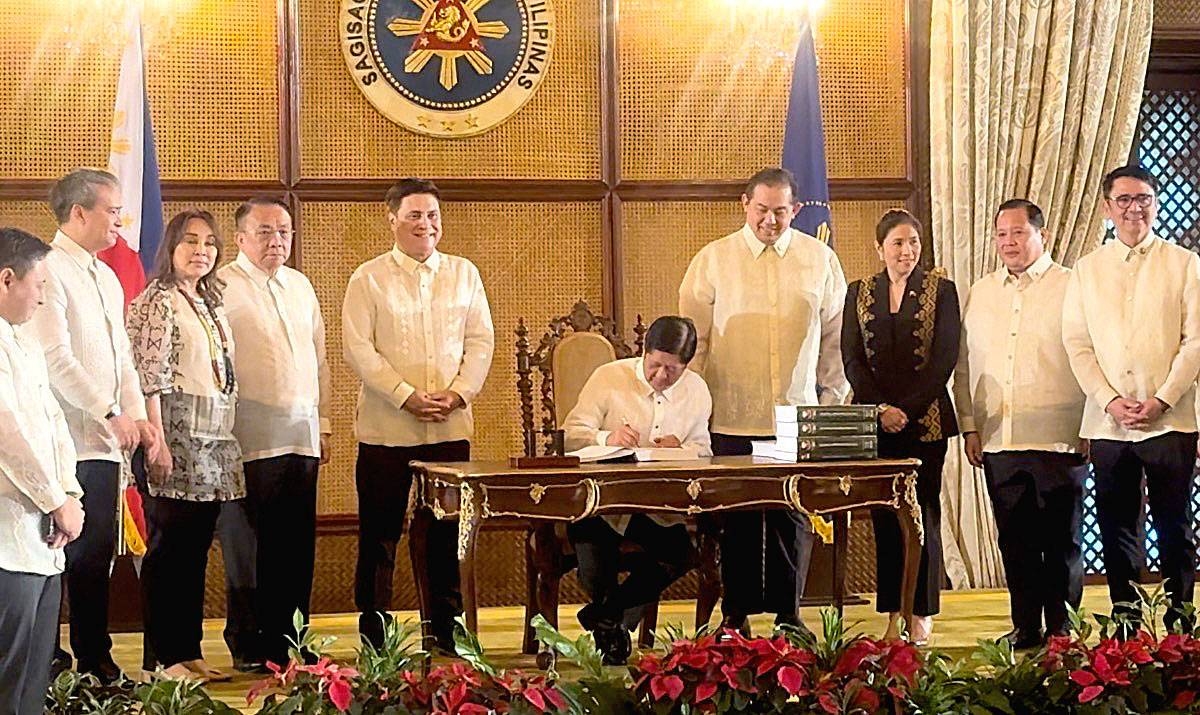Two days after signing the 2024 General Appropriations Act, President Ferdinand Marcos Jr. made the decision to veto two of its provisions. The first provision involved the Department of Justice (DoJ) revolving fund, while the second pertained to the implementation of the government’s Career Executive Service Development Program. This move by the President was communicated in a letter addressed to Speaker Ferdinand Martin Romualdez on December 20.
In his letter, President Marcos Jr. highlighted that there is no existing law that authorizes the DoJ to establish a revolving fund for the purpose indicated in the provision. The fund was intended to be derived from the service fees charged when filing complaints and affidavits with the National Prosecution Service. However, the President pointed out that these fees are clearly not generated from business-type activities allowed under the budget law.
Furthermore, President Marcos Jr. referred to a previous pronouncement by the Supreme Court, stating that “inappropriate provisions” within an appropriations bill are deemed unconstitutional. This includes provisions that are intended to amend other laws, as they have no place within the context of an appropriations bill.
The President also vetoed Section 38 under the General Provisions, which focused on the implementation of the National Government’s Career Executive Service Development Program (NGCESDP). He argued that this section is redundant since Presidential Decree 336, dated November 14, 1973, already serves as a substantive law. This decree amended certain sections of the Integrated Reorganization Plan and created the Career Executive Service Board (CESB).
President Marcos Jr. emphasized that PD No. 336 clearly delineated the functions of the CESB as the governing body of the Career Executive Service (CES). Additionally, the Development Academy of the Philippines was tasked with preparing a CES program in consultation with the CESB. He further cited Section 8 (2), Chapter 2, Subtitle A, Title I, Book V of Executive Order (EO) 292, which explicitly stated that entrance to third-level career service positions shall be prescribed by the CESB.
It is important to note that on December 20, President Marcos Jr. signed into law the P5.768-trillion General Appropriations Act for 2024. This budget amounts to 21.1 percent of the gross domestic product (GDP) and represents a 9.5 percent increase compared to the P5.268 trillion budget for 2023.
President Marcos Jr.’s decision to veto these provisions demonstrates his commitment to upholding the constitutionality and appropriateness of the General Appropriations Act. By exercising his veto power, he ensures that the budget aligns with existing laws and regulations, preventing any potential conflicts or inconsistencies.
This move also highlights the President’s dedication to efficient and effective governance. By scrutinizing the provisions of the General Appropriations Act, he aims to optimize the allocation of resources and ensure that they are utilized in a manner that best serves the needs of the Filipino people.
As the 2024 General Appropriations Act takes effect, it will be interesting to observe the impact of President Marcos Jr.’s vetoes on the implementation of the DoJ revolving fund and the Career Executive Service Development Program. The government will need to reassess and potentially make adjustments to address any gaps or challenges resulting from the removal of these provisions.
In conclusion, President Marcos Jr.’s recent vetoes underscore his commitment to upholding the rule of law and ensuring the effective implementation of the General Appropriations Act. These actions demonstrate his dedication to responsible governance and his focus on optimizing the allocation of resources for the benefit of the Filipino people.







